How To Invest In Real Estate Crowdfunding: 10 Point Checklist
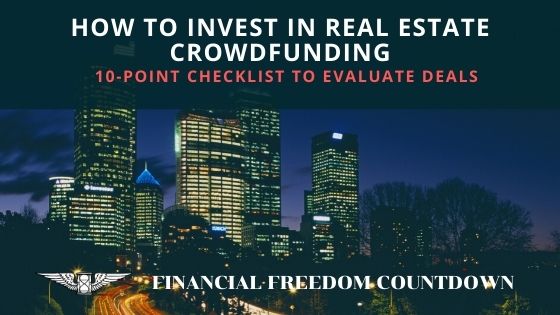
Not making money sucks. But losing hard-earned money hurts even more. I recently lost over 45% of my capital in a real estate crowdfunded deal. This failed experience helped me develop a checklist on how to invest in real estate crowdfunding; and avoid losing money.
As part of prudent asset allocation, I maintain a wide variety of income-producing assets as part of my portfolio. A few moonshots, some bitcoin, some SPACs, but most are vanilla.
While the bulk of my liquid net worth is concentrated in stocks and my primary residence, I also dabble in other non-traditional investments.
Today I want to talk about real estate crowdfunding investing, pros, and cons of it. I will also share details of my unsuccessful real estate crowdfunding investment. And how can you learn from my experience. And the checklist I created.
What Is Crowdfunded Real Estate Investing?
Real estate projects are capital intensive. Developers do not have all the funds to complete the project on their own. As a real estate developer, you can seek investors on real estate crowdfunding sites by sharing your project details. As an investor, you can evaluate various projects and decide which ones you would want to fund.
Real estate crowdfunding enables several investors to come together and invest smaller sums of money. The contributed pool of money is large enough to fund a real estate project. It is a win-win for both the investors and the developers.
Before the passage of the Jumpstart Our Business Startups (JOBS) Act, investment in large real estate projects was difficult. Borrowers or developers could not publicly solicit investment. You had to know someone to invest personally. After the JOBS Act was passed in 2012, developers can now directly market to investors.
Advantages Of Real Estate Crowdfunding
- If your existing asset allocation is only stocks and bonds, real estate crowdfunding provides the necessary diversification by adding a real estate asset class to your portfolio.
- It provides a hands-off method for investors to gain exposure to real estate without needing to be involved with the real estate project on a day-to-day basis.
- Individuals who cannot fund the entire project can still own a piece of the real estate investment and share in the profit (or loss). For example, if you are bullish on commercial real estate, you can own a part of an office building through commercial real estate crowdfunding.
- Real estate crowdfunding gives you the ability to diversify by geography and invest outside your local real estate market.
- If you only have a limited amount of money to be invested in real estate, crowdfunding lets you spread it over several projects instead of only one investment.
- You can select various crowdfunded projects to create your real estate passive income stream.
Who Can Invest In Real Estate Crowdfunded Deals?
Most of the crowdfunded real estate websites restrict investments to only accredited investors.
An accredited investor, includes anyone who:
- earned income exceeding $200,000 (or $300,000 together with a spouse) in each of the prior two years, and reasonably expects the same for the current year OR
- has a net worth over $1 million, either alone or together with a spouse (excluding the value of the person’s primary residence) OR
- Sophisticated investors such as individuals who have obtained Series 7, Series 65, or Series 82 licenses or “knowledgeable employees” of a private fund.
If you do not qualify as an accredited investor based on financials, you can still meet the accredited investor qualifications based on knowledge.
Should I Invest In Crowdfunding Real Estate?
With central banks worldwide lowering interest rates, it has become harder to get any yield on your “bond” portfolio. While yields across Japan and Europe have dipped into negative territory, you are essentially loaning money to the government with the expectation that you would get less than what you lent.
Investors are effectively paying the German government 2 euros for every 1,000 euros borrowed over 10 years. Negative yielding debt is currently at $15 trillion, and as long as there are buyers, I do not see interest rates rising.
For savers, this means there are very few options to get paid for saving.
We already talked about how to get 8% risk-free returns on our Emergency fund. However, there is a limit on the amount of funds that can be invested in this risk-free manner.
If you have more than $50,000 in your bond portfolio, you need to look at asset backed securities. While there are several asset-backed securities such as art, legal paper, business loans, etc., I prefer real estate. It is easier to understand and value.
Types Of Real Estate Crowdfunding Investments
There are two types of crowdfunded real estate investments, namely Debt and Equity.
Equity Real Estate Crowdfunded Investments
Equity real estate crowdfunding usually allow you to pick up additional appreciation when the property is sold. The price appreciation works when the sponsor can force price appreciation and change the cap rate. Of course, the upside in equity deals is a lot more on account of sharing the risk.
Equity crowdfunded real estate investments are long term. You invest the money for the developer to build or buy a real estate property. For example, a developer could buy a run-down apartment complex. The developer then takes over the management of the property and improve it one apartment at a time. This process takes several years, and you receive the rental income minus fees in the meantime. Since the property is now fully improved, the developer can sell it a few years later for more than they purchased. As an investor, you get to share in the appreciation when the property is sold. You would also have received the rental income.
An example of such a deal structure would be a projected 3x equity multiple with 9 preferred and 80/20 split. After an estimated refinance, a few years down the line, the investor capital is returned. Equity investment returns are based on a share of the net profits.
Debt Real Estate Crowdfunded Investments
Debt investment only involves the specified interest payment for the duration of your loan and the return of your capital. As long as the underlying asset retains the value; you can expect to get paid.
Consider debt real estate crowdfunding deals similar to hard money lending. Most hard money loans are used for flipping houses or rehab and rent.
Debt investments offer a fixed interest return. Evaluating them has fewer moving parts, and it is a secured debt. Hold time is also shorter since debt deals are for rehab or development projects.
Debt v/s Equity Real Estate Crowdfunded Investments
| Debt Real Estate Crowdfunded Investments | Equity Real Estate Crowdfunded Investments |
|---|---|
| Short Term | Longer Term |
| Secured Debt | Higher Risk |
| Single-phase project | Multiple phases |
| Easier to evaluate returns and outcome | More complicated evaluation |
| Fixed Interest Payments | Payments depend on deal structure |
| Interest payments taxed as income | Potential tax benefits such as depreciation |
| Limited Upside | Higher Potential Payout |
Is Real Estate Crowdfunding A Safe Investment?
Although real estate crowdfunded investments are backed by real estate, they are still not a safe investment compared to bonds.
There are several risks for real estate investments. Here are some of the specific risks involved with real estate crowdfunding:
- Fraud: The details provided by the sponsor could be fraudulent. It could be hard to decide based on limited disclosures.
- Market: The market could change rapidly, and everyone caught unaware. During the great financial crisis, all the estimates were useless as housing prices plummeted to fire-sale values.
- Platform: The real estate crowdfunding platform could run into issues. It can make the recovery of any loans hard. My failed investment was on a platform that was then acquired by another company. It took a long time for the new company to transition. In the meantime, the borrowers stopped paying. Documents were hard to obtain. Tons of defaults. No attempt at recovery. In short, a big mess.
- Cost escalation: Unless the borrower is experienced, rehab budgets overshoot. The borrower who has a minimal margin for error falls behind in payments, and it is hard to recover.
- High LTV: If the Loan to Value ratio is high, there is a risk that after foreclosure, you will still lose your invested money.
- Lack of Liquidity: A crowdfunded real estate involves several participants. If you need the money, you cannot sell the property and withdraw your funds. Be prepared for the invested funds to not be available in an emergency.
- Government regulation: Real estate is not liquid. It is also subject to local, state, and federal government regulations. These laws often keep changing, which makes it harder for crowdfunded real estate deals to take a longer term view.
- Unforeseen capital calls: Due to the project’s crowdfunded nature, investors are not in total control of the project. Sometimes, the project can run into trouble, and the sponsor can ask the investors to add more funds to rescue the project. Depending on the crowdfunded real estate waterfall deal structure, investors need to be ready for additional capital contributions.
Loan & Property Details Of My Crowdfunded Real Estate Deal
I am sharing the loan and property details so we can analyze and learn from my mistakes.
| 3081 Carrigan Canyon Drive Tranche 2, Salt Lake City, UT | |
| Total Loan Amount | $562,000.00 |
| Funding Type | Senior Debt |
| Maturity | 12 months |
| Interest Rate | 10.50% |
This is a Short-Term Rehab Loan (12 Months) with a Loan-to-After Repair Value (70.22%).
Sponsor is a 14-year veteran of the real estate industry and a founding partner of Black Oak Development Group, an entity created for the specific purpose of acquiring, developing, managing, and marketing large scale real estate projects, from conception through completion.
Carrigan Canyon is a prestigious gated community overlooking the picturesque Salt Lake Valley. While located in a private, secluded canyon, with convenient freeway access it is minutes from downtown Salt Lake City and has six ski resorts within easy driving distance. The neighborhood boasts highly rated schools within 1 mile.
Investment Highlights
- Tranche 2: This is tranche 2 of 4 on the underlying loan of $2,247,000. The loan metrics reflect the total loan amount of 2,247,000.
- Renovation Budget: Sponsor has put $380,000 into the renovation so far, with $400,000 remaining in the budget.
- Security/Purpose: The loan is secured by a first position lien against a planned unit development for the purpose of refinance, rehab and sale/refinance.
- Leverage: Platform is loaning 99.8% on the total cost, which represents a Loan-to-After Repair Value of 70.2%.
- Track Record: The borrower has a track record of 3 investments since 2015.
- Remedies: There is to be a personal guarantee on the loan by one or more of the principals of the borrowing entity. If the borrower does not pay the debt service before the grace period expires, customary late fees will be assessed. Default interest is available for any loan defaults, including failure to pay debt service or if the loan is not paid off at maturity.
- Credit: FICO Scores are based on 5 band ranges. FICO Band I (720+), FICO Band II (680-719), FICO Band III (620-679), FICO Band IV (580-619) and FICO Band V (<580). The borrower has a credit score in the range 680-719.
I received a few month’s interest payment, but soon, things began to go south.
Here are the crazy price fluctuations for the property based on listing values. Not sure what the borrower and the agent were anticipating, but this chart depicts their unrealistic expectations.
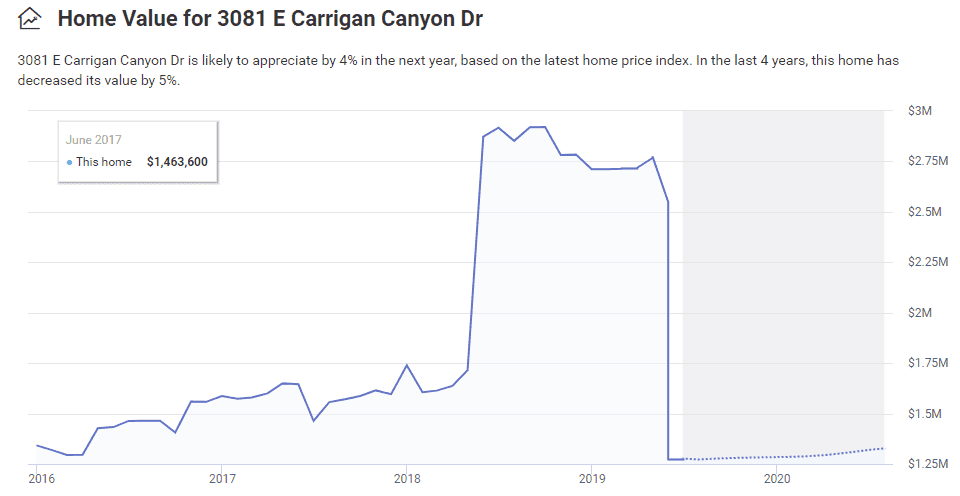
Now, let us look at why I lost money in my crowdfunded real estate project.
Instead of performing my due diligence, I relied on the real estate crowdfunding platform’s statements.
- Remember in the investment highlights how it was mentioned, “There is to be a personal guarantee on the loan by one or more of the principals of the borrowing entity“. When the real estate crowdfunding platform completed the foreclosure, the borrower had no assets.
- Questionable underwriting standards and the grossly overvalued property was presented to the investors on the real estate crowdfunding website.
- The borrower had 14 years of experience but with smaller projects compared to this one.
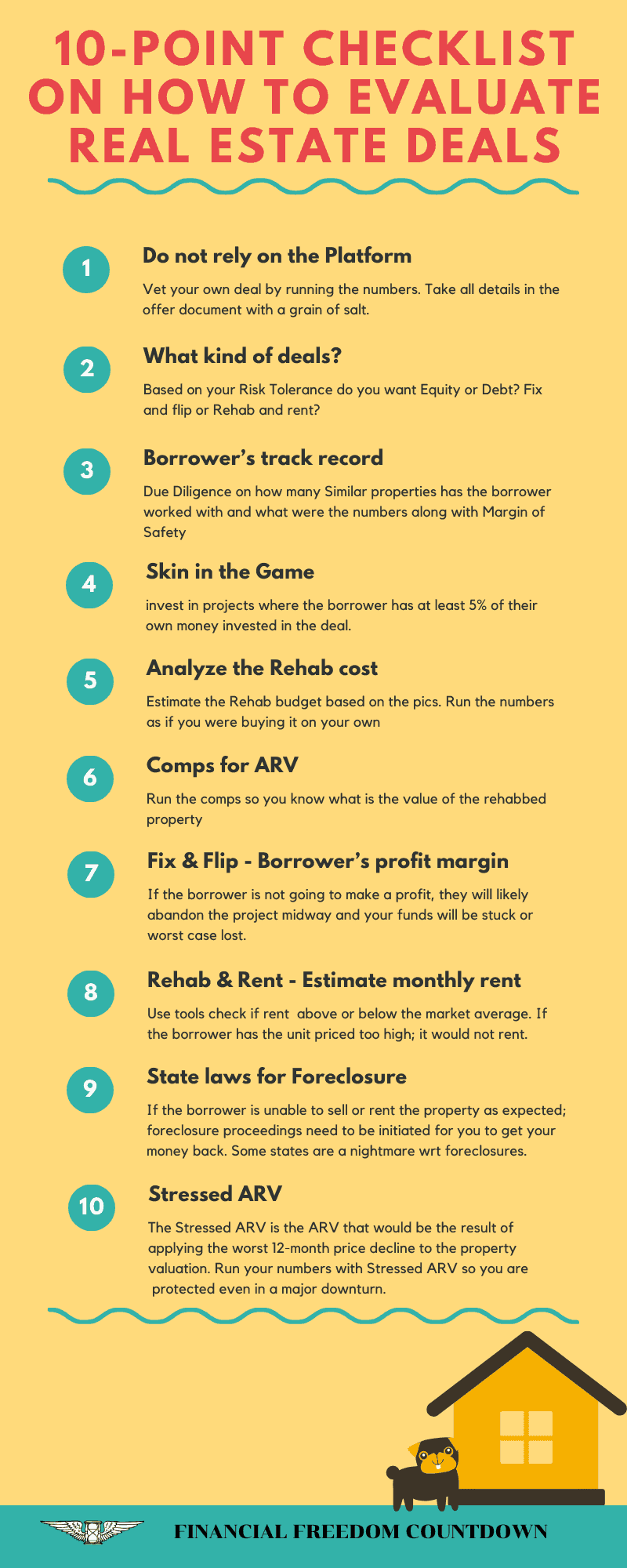
How To Evaluate Real Estate Crowdfunding Investments
- When investing in a real estate crowdfunded deal, do NOT rely on the platform to vet the deal.
- Figure out what kind of deals you want to invest in based on your risk tolerance. Equity or Debt? Fix and flip or rehab and rent?
- Run your due diligence on the borrower’s track record. Has the borrower worked with many similar properties? And what were the project details along with the margin of safety? In my case, the borrower did not have experience with such a large project. If you have done even a small rehab project for your own house, you will quickly realize that most of these projects are behind schedule and over budget. Similar properties are essential. Working on ten small rehab projects does not make one experienced enough to handle rehab for a large multi-million dollar project.
- Check if the borrower has “Skin in the game”. I feel more comfortable investing in projects where the borrower has at least 5% of their own money invested in the deal. It indicates that they are confident of their numbers to invest in their property and have a vested interest in getting it done on time and budget.
- Analyze the subject property as if you were buying it on your own. Estimate the rehab budget based on pics. The Book on Estimating Rehab Costs by Bigger Pockets is an excellent tool in your tool-belt for this purpose.
- Run the comps to know the rehabbed property’s value, also known as ARV (After Repair Value).
- In case of a fix and flip, the rehab cost and the ARV, and the purchase price will provide you with an estimate of the borrower’s profit margin. It will help you figure out if the borrower will make a profit on the deal or not. If the borrower is not going to make a profit, they will likely abandon the project midway, and your funds will be stuck or, in the worst case, lost.
- In rehab and rent; you have to know the approximate monthly rent for the property. Several sites provide you this data. I use https://www.rentometer.com/ to price my rental properties, which indicates if I am above or below the market average. Remember, the market sets the rental value, and if your unit is priced too high, it will not rent.
- Understand state laws for foreclosure. If the borrower cannot sell or rent the property as expected, foreclosure proceedings need to be initiated to get your money back. Based on the current laws NJ, NY, IL is nightmare to foreclose. GA, MS, TX have quicker foreclosure timelines.
- If you followed all the steps above, you would be far ahead of the 90% of folks lending on a crowdfunded platform. However, Financial Freedom Countdown readers are not satisfied with being better than average. We want to be the best. In all your calculations, replace ARV with “Stressed ARV”. In case you are wondering, the Stressed ARV is the ARV that would be the result of applying the worst 12-month price decline to the property valuation. The Great Financial Crisis devastated home prices across the USA and brought financial markets across the world to their knees. To avoid getting caught in a similar situation while you lend money, make sure you use Stressed ARV to protect your funds.
How Can I Start Investing In Real Estate Crowdfunding Deals?
To get started with crowdfunding real estate deals:
- Determine if you are an accredited investor or not. Link all your accounts using the free Personal Capital tool to determine your net worth. Some real estate crowdfunding platforms permit accredited investors. Others allow both accredited and non-accredited investors.
- Research various real estate crowdfunding platforms based on strategy, niche, investment minimums, reputation, number of deals, fees, past returns, past defaults, default recovery efforts, management experience, transparency.
- Depending on your net worth and the criteria, sign-up for the appropriate real estate crowdfunding platforms. If you are an accredited investor, you will have more options.
- Decide your investment time horizon and the amount you would like to invest.
- Do you prefer an office tower or a residential apartment? Do you want equity or debt deals?
- Once you have your criteria defined, evaluate the real estate crowdfunding deals using the above 10-point checklist.
- Monitor the regular updates published by the real estate crowdfunding platform for your property.
Can You Get Rich From Real Estate Crowdfunding?
Stocks, bonds, real estate have unique risk, return, and liquidity characteristics. Ideally, it would be best if you had a mix of different asset classes from a diversification standpoint.
Crowdfunding investors make money based on the interest rate of the money they loan. Debt deals on crowdfunded real estate platforms provide a high return rate (around 8% to 12%). Equity deals offer a higher return because they have a more extended hold period, and you get the extra return when the property is finally sold.
Real estate crowdfunding returns are higher than bonds and even index funds in some cases.
Risk and return are co-related. Any high return investment would involve high risk and vice-versa. The advantage of real estate crowdfunding is that your loan is backed by collateral.
Real Estate Crowdfunding Companies
The best real estate crowdfunding companies depend on your goals!
Crowdfunding platforms for accredited investors
PeerStreet has a low $1,000 minimum which allows for better diversification for accredited investors. The platform offers residential and commercial real estate investments in the private market. You can define the criteria based on rate, LTV, duration, etc., and their Automated Investing feature automatically places you into investments that match your criteria. I use Automated Investing since the good deals are filled within minutes on their platform. PeerStreet also allows investors to review the performance of every past investment, which is helpful for due diligence.
EquityMultiple is a real estate investing platform that gives accredited investors direct access to individual commercial property, allowing you to review, compare, and personally choose the deals that meet your investment criteria. EquityMultiple has a low minimum of only $5,000 investment. They are one of the few sites that claim to co-invest in every investment, ensuring “skin in the game” and the most significant incentive to do maximum due diligence. EquityMultiple has many different asset types: office buildings, industrial, senior housing, retail, residential, self-storage, student housing, data centers, etc.
CrowdStreet is a commercial real estate investing platform for accredited investors. It has a higher minimum of $25,000 per deal. CrowdStreet offers both single property investments and multi-property funds, as well as both equity and debt deals. Most commercial real estate investments have no investor fees (unless investing in a fund with underlying fees). CrowdStreet has the highest number of different asset types available for investing. Commercial real estate projects, including office buildings, industrial, hospitality, senior housing, retail, multifamily apartments, storage, schools, medical centers, student housing, data center, parking garages, etc., are available to invest directly.
Farm Together and AcreTrader provide accredited investors with an option to invest in institutional quality farmland at the click of a button. You get the benefit of an experienced team evaluating various options before it is available on the platform. A crew takes care of farm management aspects such as insurance, accounting, leasing the farm, and working with the farmer. And finally, to sell the farmland. Here is my farmland investing review.
Crowdfunding platforms for non accredited investors
A few options are available using the REIT structure if you wonder about equity crowdfunding for non-accredited investors. Note that these REITs are not the same as publicly-traded REITs. Unlike many publicly-traded REITs, the crowdfunded investments are typically privately held.
Fundrise: Most of the real estate crowdfunding platforms are restricted to only accredited investors. Fundrise has a unique structure that permits equity crowdfunding for non-accredited investors. Also, Fundrise has one of the lowest minimums (only $10 for the Starter level and $1,000 for the Basic level). The Basic level has additional features of IRA investing compared to the Starter level. You can upgrade to higher account levels if you want to invest more over time. Fundrise is primarily focused on residential real estate currently.
DiversyFund is similar to Fundrise in offering a REIT structure. It offers a low $500 minimum and is available for both accredited and non-accredited investors. You can’t withdraw your money until the five-year investment term is over because DiversyFund reinvests the dividends and earnings your investment generates until the real estate asset is sold.
Streitwise is similar to Fundrise in offering a fund structure and is available for accredited and non-accredited investors. They have one of the lowest fees and high “skin in the game,” with over $5M of capital invested by founders in the deals. I do like the high conviction to invest their own money along with other investors. You can invest in Streitwise as an Individual, LLC/Corporation, Trusts or IRA/401(k). The other advantage is that Stretwise is also open to foreign/non-USA investor. Minimum investment is $5,000.
The trade-off with low investments of Fundrise and DiversyFund is that you cannot select one particular property; but rather an eREIT invested in several commercial real estate investments. If you are a fan of diversification, the investment spread over multiple properties reduces the risk.
| Investment Platform | Open to | Type of Investment | Minimum |
|---|---|---|---|
| PeerStreet | Accredited Investors | Residential | $1,000 |
| EquityMultiple | Accredited Investors | Commercial | $5,000 |
| CrowdStreet | Accredited Investors | Commercial | $25,000 |
| AcreTrader | Accredited Investors | Farmland | $10,000 |
| FarmTogether | Accredited Investors | Farmland | $15,000 |
| Fundrise | Accredited and non-Accredited Investors | Residential | $10 |
| DiversyFund | Accredited and non-Accredited Investors | Residential | $500 |
| Streitwise | Accredited and non-Accredited Investors. And also foreign/non-USA investors | Commercial | $5,000 |
Best crowdfunding real estate platforms
If you do not qualify as an accredited investor based on financials, you can still meet the accredited investor qualifications based on knowledge.
Final Thoughts On How To Invest In Real Estate Crowdfunding
Although many platforms restrict investment in crowdfunded real estate deals to only accredited investors, few platforms permit non-accredited investors. Real estate syndication provides the benefits of real estate without needing your day to day involvement.
There are several advantages to investing in a real estate crowdfunded deal. However, crowdfunded platforms have some bad deals that default, and you could lose money, just like I did. Since most of the investors are accredited investors, the defaults do not receive widespread mainstream media coverage. Follow my 10-point checklist to evaluate crowdfunded real estate deals.
Readers, have you tried lending on crowdfunded real estate platforms? How has your experience been so far? What steps would you add to the checklist to ensure your funds are protected? Do you prefer residential or commercial?

John Dealbreuin came from a third world country to the US with only $1,000 not knowing anyone; guided by an immigrant dream. In 12 years, he achieved his retirement number.
He started Financial Freedom Countdown to help everyone think differently about their financial challenges and live their best lives. John resides in the San Francisco Bay Area enjoying nature trails and weight training.
Here are his recommended tools
Personal Capital: This is a free tool John uses to track his net worth on a regular basis and as a retirement planner. It also alerts him wrt hidden fees and has a budget tracker included.
Platforms like Yieldstreet provide investment options in art, legal, real estate, structured notes, venture capital, etc. They also have fixed-income portfolios spread across multiple asset classes with a single investment with low minimums of $10,000.



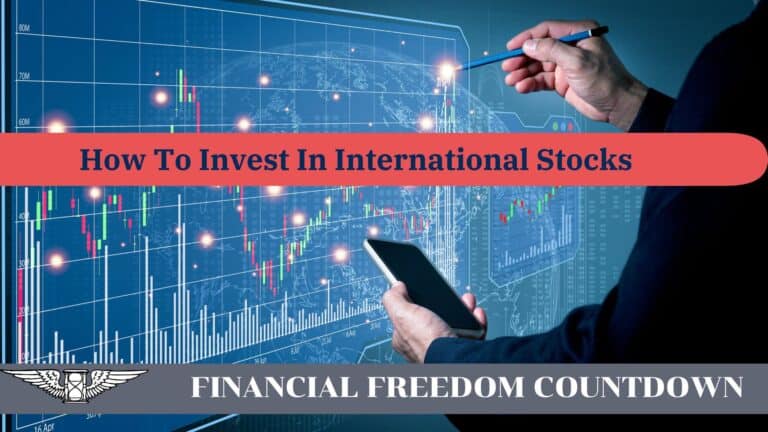

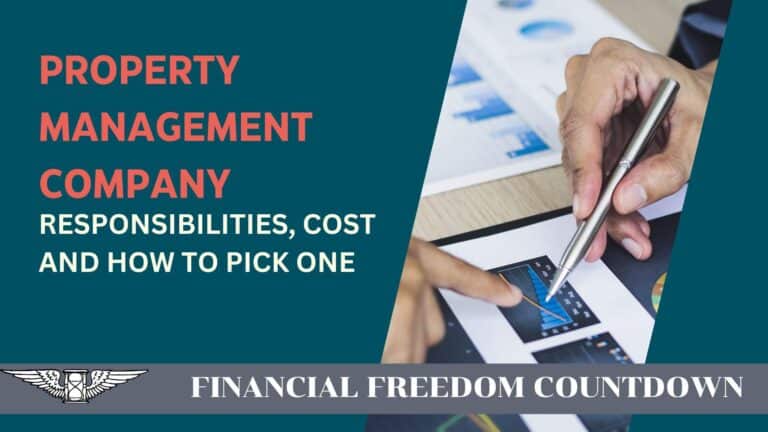
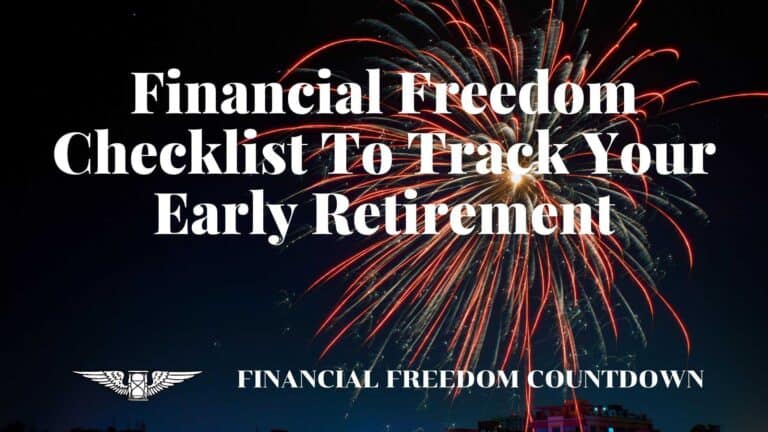
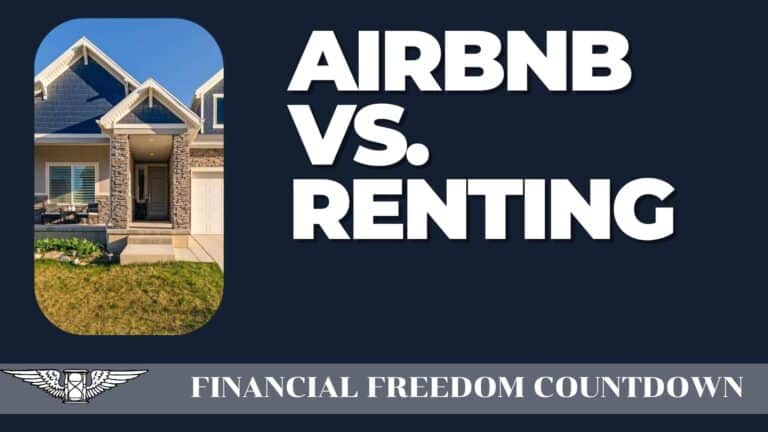
I really appreciate you sharing lessons learned. Did you ever get back into real estate crowdfunding?
Yes I did get back into crowdfunded real estate. I use this same checklist to now vet the developer, the viability of the project, the cap rate, etc. It is better to spend extra time doing the due diligence.
Yikes! Thank you for sharing your experience and more importantly for posting the checklist. I was planning to invest and would most likely have lost money. Now I at least know how to evaluate deals
Glad you found it useful. Keep us posted how your investment turns out.
Owning rental houses is a great strategy. Clicking a button to invest does outsource a lot of the control to the sponsor.
Oh man that’s nuts. I’ve never bought into funded real estate but I thought it would have a really high success rate. In fact I own a lot of rental houses and thought my next venture would be to try crowd funded for the simplicity.
The numbers seemed to good to be true (without serious risk) and I guess they really are 😐